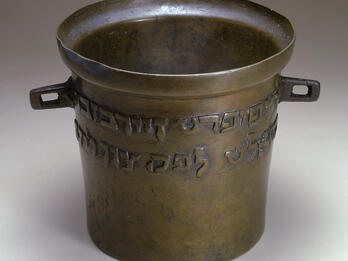Bet Yosef (The House of Joseph): On Marriage Contracts
Question: Reuven has a single daughter, soft and delicate, whom he married to Ḥanokh ben Judah with a dowry of a thousand sultanish. The bride is twelve years old, and in her father’s home she was accustomed to having two maidservants to perform her work. But now her husband and mother-in-law, not only do they feed her with meager bread and minimal water, but they also subject her to various kinds of servitude such as washing and laundering and doing other housework. They treated her with such anger and fury that she could no longer bear it and returned to her father’s house. Rabbi, please instruct us as to who is in the right here—the husband or the wife, who argues that although she did not bring a maidservant, since she brought a thousand sultanish, it is not proper to treat her like a servant. Who has the better case?
Answer [concluding a long argument]: [ . . . ] We thus learn that according to all the commentaries the bottom line is that if she brought in a dowry large enough to buy a maidservant, she is not required to perform those tasks even if she was previously accustomed to doing them. If it was not her manner to do those tasks, then even if she did not bring in a dowry, she is not required to do them.
In this particular case, where there are two factors in her favor, as she was accustomed to having two maidservants, and she also brought in a large enough dowry to buy at least four maidservants or more, everyone agrees that she is not required to do any of these tasks, as a wife is given to her husband for living with him, not to suffer pain with him, and likewise she ascends to his higher status but does not descend with him to a lower status [see b. Ketubbot 61a], and a husband is obligated to honor his wife.
Credits
Joseph Karo, “Bet Yosef (The House of Joseph): On Marriage Contracts” (manuscript, Safed, 1542). Published as: Jacob ben Asher and Joseph Karo, Ḥoshen ha-mishpat: ... Ve-kara shemo vet Yosef (Sabiyoneta: Toviyah ben Eliʻezer Pu’ah, 1559), p. 106 (?).
Published in: The Posen Library of Jewish Culture and Civilization, vol. 5.



